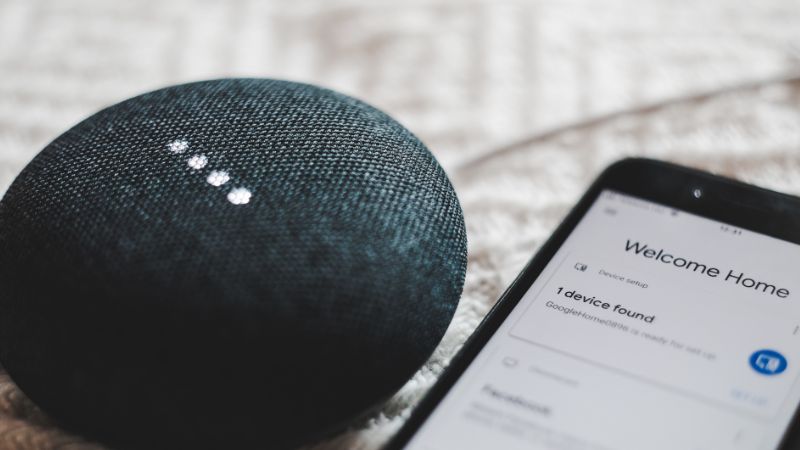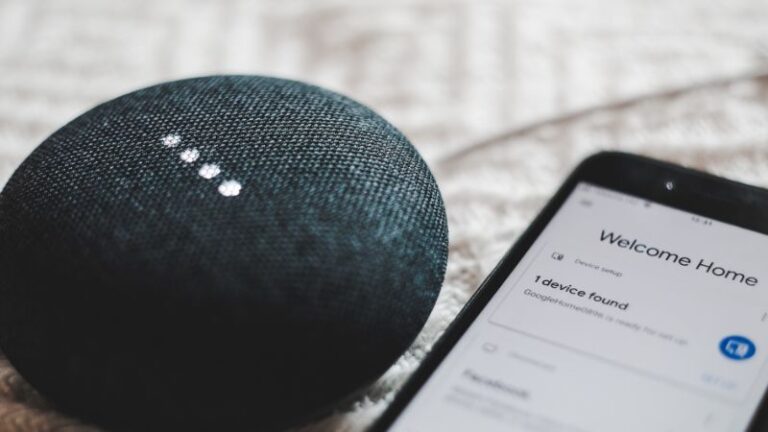Gadget security and how to make sure your data is not being mined

The introduction is an important part of any piece of writing as it sets the tone for the entire article. When it comes to gadget security and data privacy, the introduction serves as a way to explain the significance of these issues and why they matter to individuals in their daily lives.
Gadget security refers to the protection of electronic devices from unauthorized access or harm. In today’s increasingly digital world, it has become more important than ever to ensure that our gadgets are secure, especially considering the amount of personal and sensitive information that we store on them. From smartphones to laptops and smartwatches, we rely heavily on these devices to manage our personal and professional lives.
At the same time, data privacy is a growing concern for individuals as well as organizations. Our personal data is constantly being collected and analyzed by various entities, from social media platforms to e-commerce websites, to governments. Data mining, which involves the extraction and analysis of this data, can have serious consequences such as identity theft, financial fraud, and other forms of cybercrime.
Therefore, it is crucial to take proactive measures to protect our gadget security and ensure that our personal data is not being mined without our knowledge or consent. In this article, we will discuss various types of gadget security threats and ways to protect our devices, as well as methods to prevent data mining and maintain data privacy.
Types of Gadget Security Threats
Malware, short for “malicious software,” is a type of software designed to harm or infiltrate a computer system without the user’s consent. Malware can be introduced to a device through various means, including email attachments, infected software downloads, or even visiting an infected website.
Some common types of malware include viruses, trojans, and spyware. A virus is a type of malware that spreads by infecting other files or systems, while a trojan is a type of malware disguised as legitimate software. Spyware, on the other hand, is designed to monitor a user’s activities and steal sensitive information.
To protect your device from malware, it is important to keep your antivirus software up to date and avoid downloading or opening suspicious files or links.
Phishing is a type of social engineering attack that attempts to trick users into divulging sensitive information such as passwords, credit card numbers, or other personal data. This is typically done by impersonating a trusted entity such as a bank or other financial institution.
Phishing attacks can occur through various means such as email, social media, or even text messages. In most cases, the attacker will try to create a sense of urgency to prompt the user to take immediate action.
To protect against phishing attacks, it is important to be cautious of any unsolicited emails or messages and to avoid clicking on links or downloading attachments from unknown sources. It is also recommended to enable two-factor authentication on accounts that support it.
Public Wi-Fi networks are often unsecured, meaning that anyone can access the network without a password. While this may be convenient, it also makes it easier for attackers to intercept sensitive information being transmitted over the network.
Hackers can use tools such as packet sniffers to intercept data transmitted over unsecured Wi-Fi networks, including login credentials and other personal information.
To protect against unsecured Wi-Fi network threats, it is recommended to avoid connecting to public Wi-Fi networks unless absolutely necessary. If you must use public Wi-Fi, it is recommended to use a virtual private network (VPN) to encrypt your connection and protect your data. Additionally, be sure to disable automatic Wi-Fi connection settings on your device to avoid accidentally connecting to an unsecured network.
How to protect your Gadget Security
Regularly updating your device’s software is one of the easiest and most effective ways to protect against security threats. Software updates often include security patches and bug fixes that address known vulnerabilities in the system. Make sure to enable automatic updates or check for updates regularly to ensure that your device is up to date.
Using strong passwords is another important way to protect your gadget security. Avoid using easily guessable passwords such as “123456” or “password” and instead opt for longer, more complex passwords. It is also recommended to use a different password for each account to prevent a security breach from affecting all your accounts. Consider using a password manager to help you keep track of your passwords.
As previously mentioned, public Wi-Fi networks are often unsecured and can be easily exploited by attackers. Whenever possible, avoid connecting to public Wi-Fi networks, especially when accessing sensitive information such as banking or personal data. Email attachments are a common method of distributing malware, so it’s important to be cautious when opening attachments from unknown senders. Be especially wary of attachments with unusual file extensions or those that ask you to enable macros or other features. It’s always best to err on the side of caution and delete any suspicious emails or attachments.
As previously mentioned, a VPN can be an effective way to protect your device when using public Wi-Fi networks. A VPN encrypts your connection, making it much harder for hackers to intercept your data. Consider using a reputable VPN service to add an extra layer of security to your internet connection. Speaking so much about safety and the security tools, you might also want to use the best background check site, offering wonderful opportunities and methods to get trustworthy and resourceful information.
Finally, disabling unused features on your device can help to minimize security risks. For example, if you don’t use Bluetooth or NFC, it’s a good idea to turn them off to prevent attackers from exploiting those features. Similarly, if you don’t use location services, consider turning them off to prevent apps from tracking your whereabouts.
Data Mining
Data mining refers to the process of extracting information and patterns from large sets of data. This information can be used for a variety of purposes, including marketing, research, and analysis. While data mining can be a valuable tool for businesses and organizations, it can also pose a significant threat to individual privacy.
Personal data can be mined in a variety of ways, including through online tracking, social media monitoring, and data breaches. Online tracking refers to the practice of tracking a user’s online activity, often for targeted advertising purposes. Social media monitoring involves analyzing social media activity to gain insights into an individual’s preferences, interests, and behaviors. Data breaches occur when a company or organization’s security is compromised, resulting in the theft of personal data such as names, addresses, and financial information.
The consequences of data mining can be significant, particularly when it comes to personal privacy. In addition to being used for targeted advertising, personal data can also be sold to third-party companies, potentially leading to unwanted solicitations and spam. Additionally, personal data can be used to make decisions about individuals, such as whether to offer them credit or insurance. In some cases, this can result in discrimination or other unfair treatment.
To prevent your personal data from being mined, it’s important to take steps such as using privacy-focused web browsers, limiting your social media activity, and being cautious about the information you share online. It’s also important to regularly monitor your credit reports and financial statements to detect any unauthorized activity. By being proactive about protecting your personal information, you can help minimize the risks associated with data mining.
Overall
In today’s digital age, gadget security and protecting personal data are more important than ever. Malware, phishing, and unsecured Wi-Fi networks are just a few examples of the security threats that individuals face when using their devices. However, there are many effective ways to protect your gadget security, such as updating software regularly, using strong passwords, and avoiding public Wi-Fi networks.
In addition to gadget security, individuals should also be aware of data mining and take steps to protect their personal information from being mined. Personal data can be used for a variety of purposes, including targeted advertising and decision-making, but it can also pose significant risks to individual privacy.
By staying informed about gadget security and data mining, individuals can take proactive steps to protect their personal information and minimize their risks. Whether it’s using a reputable background check site for personal safety, or being mindful of the information you share online, everyone has a role to play in protecting their gadget security and personal data.






